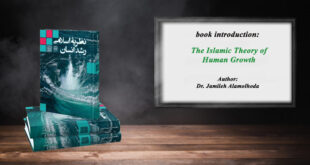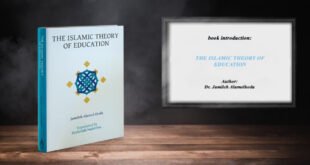The Islamic Theory of Education – Volume II
Nowadays, theoretical studies about Islamic education are widely popular, but many new questions are raised with the expansion of this type of studies, a large part of which is related to formal education. Even though Muslim thinkers have created many scientific works about education as an independent subject or under the topics of jurisprudence, ethics, mysticism, social studies, etc., there is still a gap in detailed, systematic, accurate discussions about formal education based on Islamic teachings and basics. In this book, the author aims to achieve a comprehensive view of the theory of Islamic education by scrutinizing various theories in the field of philosophy of education and criticizing and explaining Islamic and narrative texts (relying on the opinions of Mulla Sadra).
The content of this book is arranged in 10 chapters according to the topics of “The Islamic Theory of Education – Volume II” and assuming that the readers are aware of them. In the first chapter, the concept of formal education has been examined according to its application in specialized texts and especially in relation to what is considered informal and quasi-formal education. Then, based on the study of the theoretical foundations and a critical approach, an attempt has been made to provide a basis for a balanced understanding of this concept and to make it possible for the reader to distinguish between the main elements of formal education and its secondary and local features. The second chapter begins with an argument about the dependence of formal education on law and political order. This chapter refers to political philosophies, and considers their influence on education and formation of formal education models. It is found that education philosophies are connected with political philosophies at the political end points, and there is a deep connection between the formation of government and that of formal institutions, especially the corresponding education system. The third chapter refers to the ideological role of development in the formation of formal education, and reviews the relationship between the government and educational systems. The fourth chapter elaborates the educational functions of the government based on the concepts and propositions raised in the texts related to the Islamic political thought, and explains the velaei order against the sultanic order and the mass order. In this chapter, an attempt has been made to establish a logical connection between the meaning of government in political theorizing and its educational mission. The fifth to eighth chapters are dedicated to formal education goals. The fifth chapter refers to the educational goals presented in “The Islamic Theory of Education – Volume II”, argues for the goals of the formal education system, and considering the elements of “monotheism”, discusses the areas for redefining the relationship between development and education in order to restore the status of reason and the progress of the individual and society. The sixth chapter explains the mission of formal education in the distribution of values according to the existing theoretical challenges. This chapter introduces the establishment of a common value system and the control of institutional influences on the distribution of values as one of the missions of the formal education system, which causes the development and excellence of society by helping to develop the internal value system of citizens, experts, researchers and specialists. The seventh, eighth and ninth chapters are dedicated to the issue of justice and its relationship with education. The seventh chapter examines and criticizes the theoretical basis of justice and educational justice. The eighth chapter presents a new explanation of justice with the help of philosophical and Qur’anic reflections, which provides the basis for attention to justice as the subject and goal of education based on the understanding of the purpose of life. The ninth chapter points to the dilemma facing educational justice, focuses on the concentration of justice on education and explains the principles of educational justice. Criticizing the government-oriented structure of formal education and taking into account the teachings of Islam, the tenth chapter suggests the use of a three-dimensional model and presents arguments regarding the development of family educational interventions in policy-making and planning of formal education.
Author: Dr. Jamileh Alamolhoda
 Dr Jamilesadat Alamolhoda Personal Website
Dr Jamilesadat Alamolhoda Personal Website


